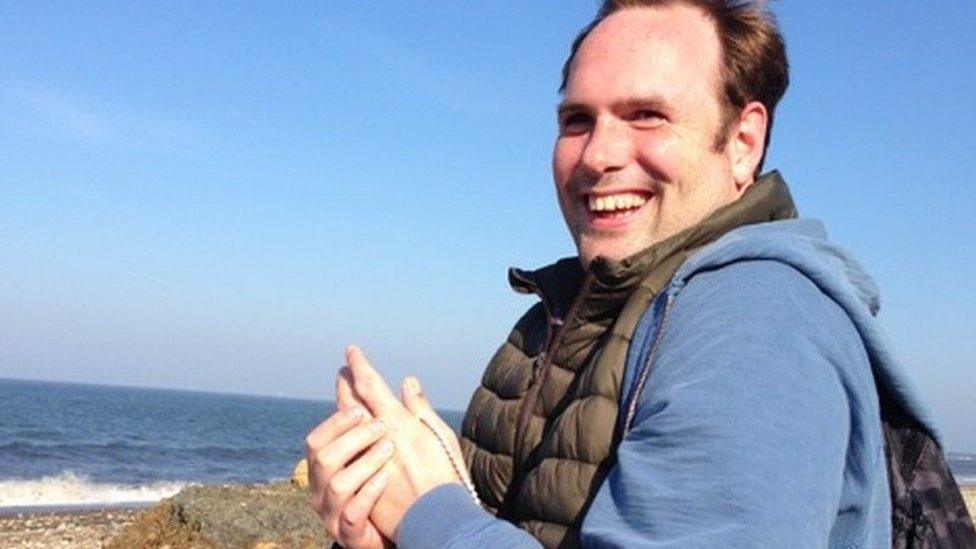Charities warn pledge to reduce locked-in patients will not be met
- Published
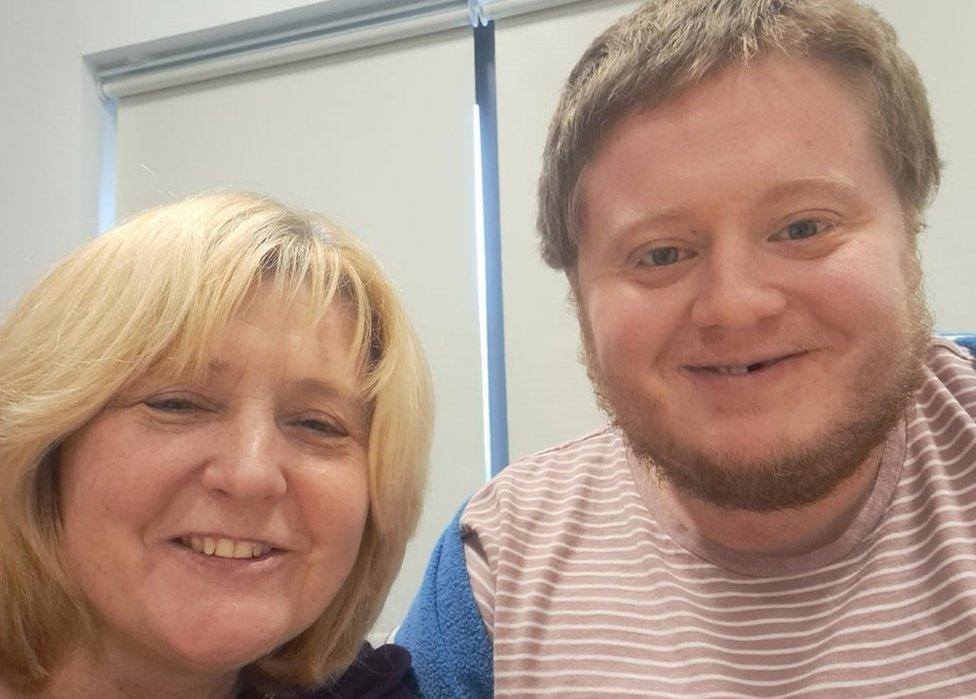
Sylvia McMahon's son Jamie has been stuck in hospital for years
Hundreds of people with learning disabilities are still locked in hospitals or being housed far from home despite a pledge to move them out.
Last year the Scottish government set a target to move a significant number of people out of inappropriate hospital stays by March 2024.
But charities and support agencies say more people are going into institutional care than are coming out.
The Scottish government says it still hopes to meet the "ambitious" pledge.
To make this happen, ministers said they would create a dynamic register of all those people stuck behind locked doors or far from home.
However, a Freedom of Information request and subsequent review by the BBC found that the dynamic register has not yet been set up.
BBC Scotland asked how many people are on the register and how many people have been moved out of inappropriate placements and delayed discharge beds in hospital.
The government originally said it could not tell us, then admitted that the register had not been created.
It says it now hopes that local registers will be created next month.
A BBC Scotland investigation last year found there are people with learning disabilities and autism who have been locked in institutions for decades.
The four men we highlighted are still stuck behind locked doors.
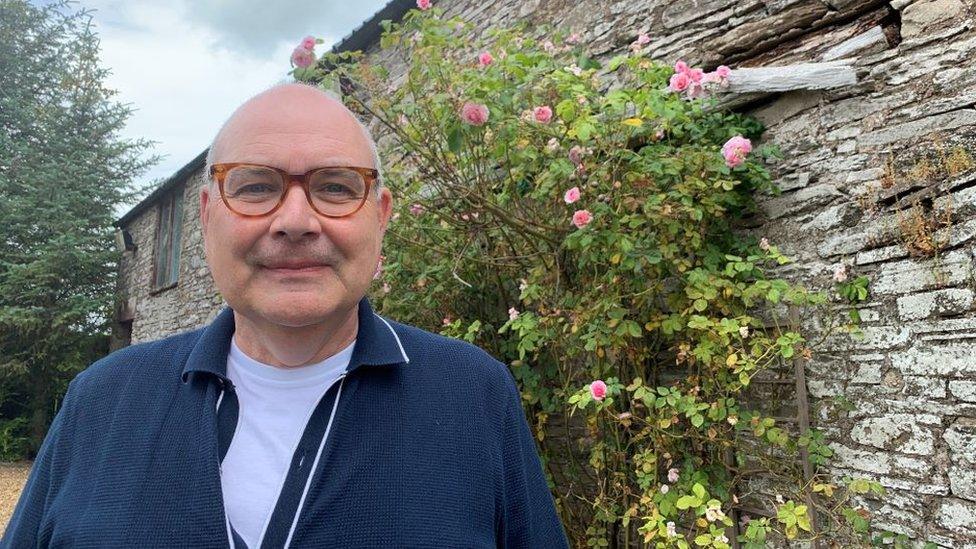
Charlie McMillan says there are a number of stumbling blocks
In 2013, the Scottish government said that by 2018 it wanted people with learning disabilities, autism and complex care needs to be supported to live nearer their families.
Its Coming Home report in 2018 found that more than 400 people were still in care homes and hospitals out of their local area, not through choice.
It said 109 of them needed to be brought home as a priority.
The government published another report in February last year, which said: "By March 2024 we want and need to see real change with out-of-area residential placements and inappropriate hospital stays greatly reduced."
It said that out-of-area residential placements should only be made through individual or family choices, and that people should only be in hospital for as long as they require assessment and treatment.
Richard Baker, the head of campaigns at the charity Enable Scotland, said he did not think it would be possible for the government to meet that pledge.
"At the minute we are seeing more people going into institutions, more people being taken far from home," he said.
"We can't see how they are going to meet this pledge to significantly reduce this problem by March of next year - particularly with current pressures on social care.
"We think it is absolutely vital that when we get to next March we don't just see a re-calculation of these figures."
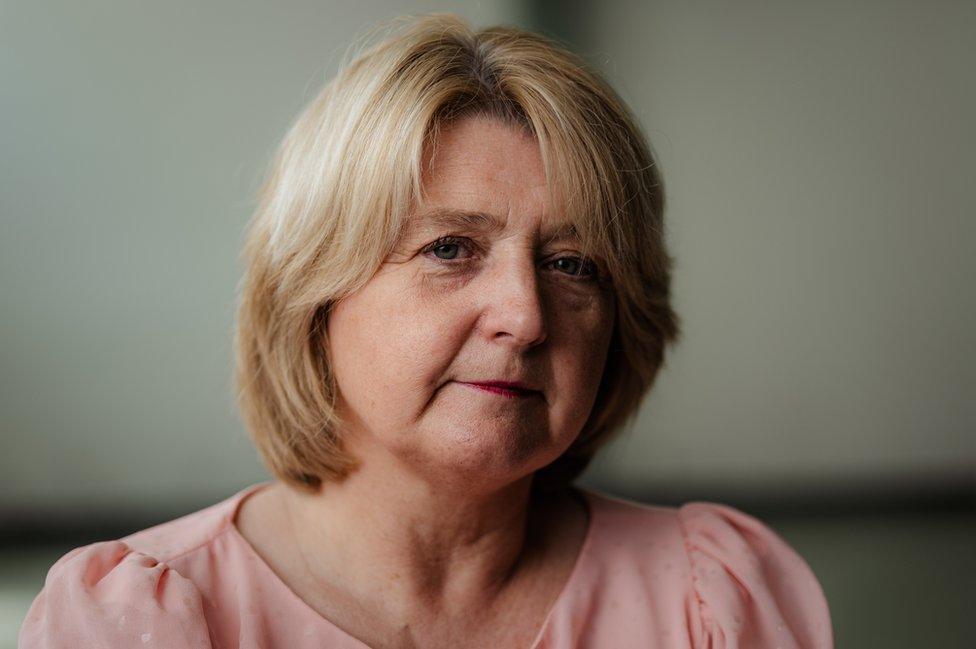
Sylvia McMahon says her son had a good life before he was locked up
Charlie McMillan, the chief executive of the Scottish Council for Learning Disabilities, said there was a lack of suitable accommodation, a lack of support staff and lack of visibility because many people were literally behind locked doors.
"There are a number of stumbling blocks," he said.
"One of the biggest is stumbling blocks that people with learning disabilities are invisible - we are not counting them.
"That is why we welcome the dynamic register. It needs to happen it needs to be implemented, and it needs to be a priority."
Sylvia McMahon's son Jamie is in Woodlands View in Ayrshire. He is recorded as a delayed discharge but has no definite plan in place to get him out of hospital.
Jamie, who is now 25, has been stuck in hospital for years. Sylvia says during Covid his behaviour deteriorated because he could not see his family and did not understand why.
As a result he lost his rights to go out on trips. His mum says he used to love hillwalking and spending time with his family. At weekends they would walk for hours then stop for a pub lunch.
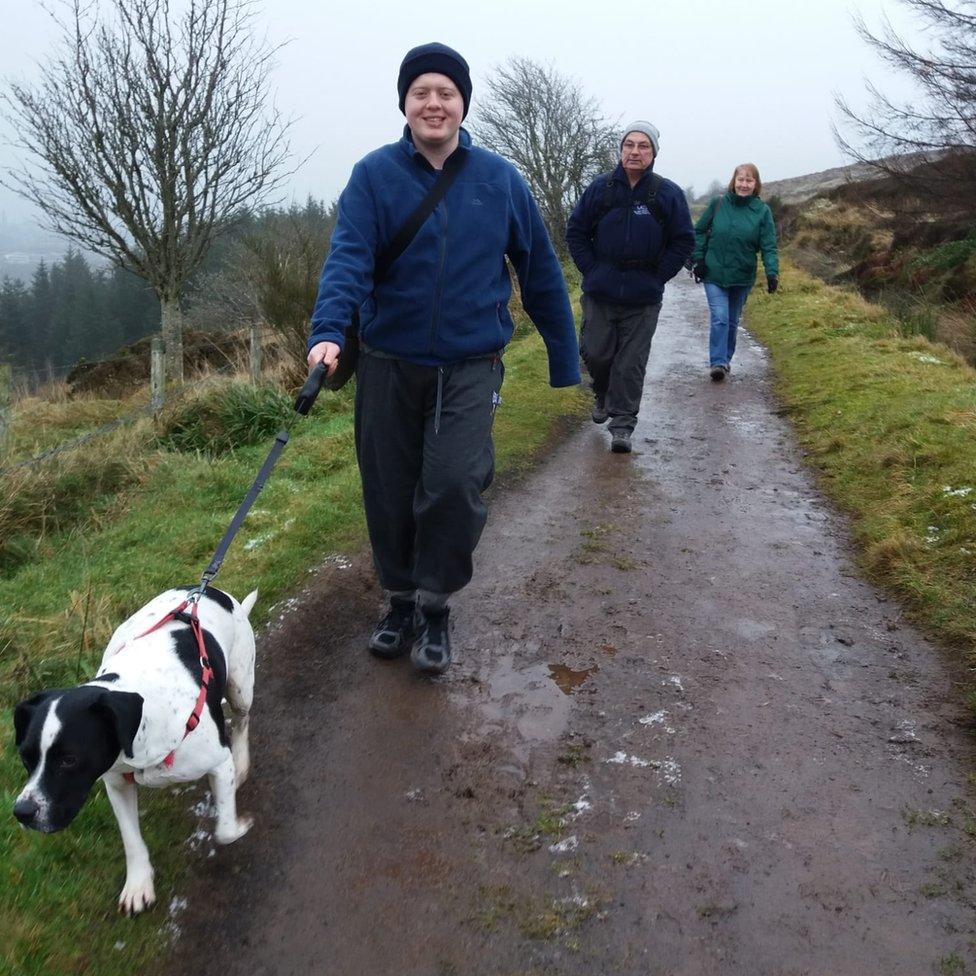
Jamie used to love hillwalking and spending time with his family
Sylvia told the BBC: "He has lost his life but he has also lost his life skills which is a shame… because he has been locked up he has lost all that.
"He had a good life. It makes me feel sad, but it makes angry when they said they're going to get everyone out by 2024.
"It would be easy to get Jamie out yet they are not trying. They need to let some red tape go somewhere."
NHS Ayrshire & Arran said it was continuing to provide inpatient care and wase working very closely with Renfrewshire Health and Social Care Partnership, as the responsible area leading on discharge planning.
"Due to patient confidentiality, we are unable to provide any further information," it said.
Experts say it is possible to move people out of institutions and to support them to live their own lives.
Kate Sainsbury's son Louis has been in and out of hospital and inappropriate out-of-area placements for years.
Last summer Louis moved into his own home in Perthshire with round-the-clock carers where he is happy and settled.
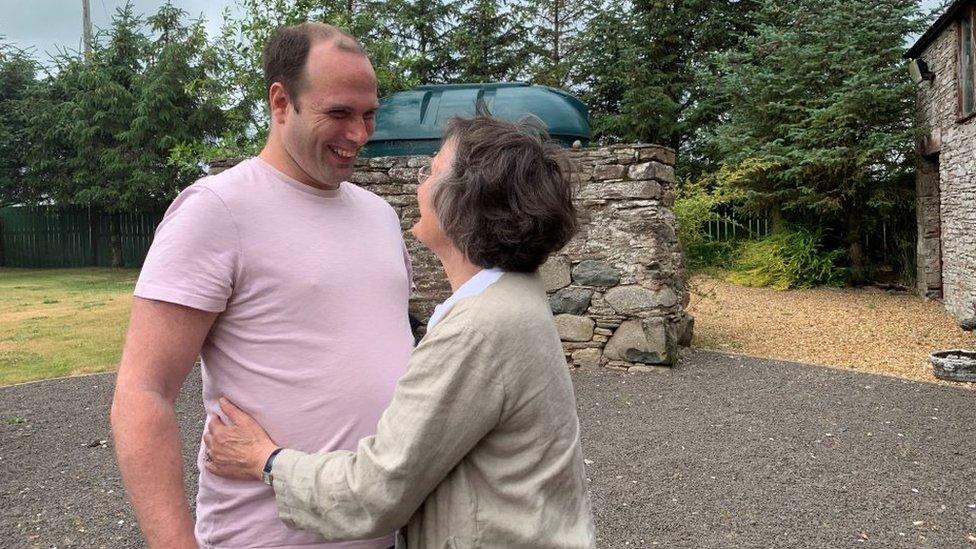
Kate Sainsbury's son Louis moved into his own home last year
Louis and Kate have been working with academics at Napier University on what works to help others move smoothly into their own homes. The research found listening to the voices and needs of the families and the people locked in is vital.
Kate said: "What we are finding is that Louis needs to feel safe and his staff team needs to feel safe. If we can get that right everything else will follow."
She said she had spoken to another mother who was unaware that people with learning disabilities were locked up in hospital.
"She just didn't know. There is not enough profile of this.
"The framework is there. There is a huge amount of goodwill but it is about what happens on the ground."
Social Care and Mental Wellbeing Minister Maree Todd told the BBC that the register or local registers will be launched next month.
She said the target was "ambitious" but that the government hopes to meet it.
She said: "I'm keen to make progress on this. It's really vitally important that we make progress on this issue - it is a high priority for government, we're working closely with local authorities.
"These are complex cases. It's really challenging to put in place the appropriate level of care in the community for these individuals, but we're determined to do that."
A Scottish Government spokeswoman added: "Work to establish Dynamic Support Registers is well under way and guidance and information for the registers were sent to all Integration Authorities, NHS Boards and local authorities in May 2023.
"Responsibility for delivery rests with these local partners and we know a number of local areas are already using these registers. We expect that all remaining areas populate their own local registers by July."
- Published21 February 2022
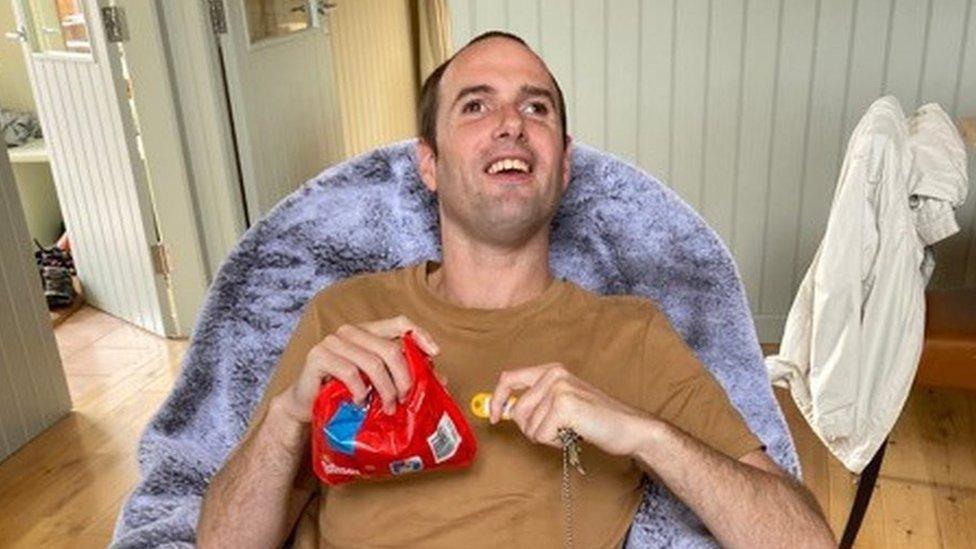
- Published2 October 2018
